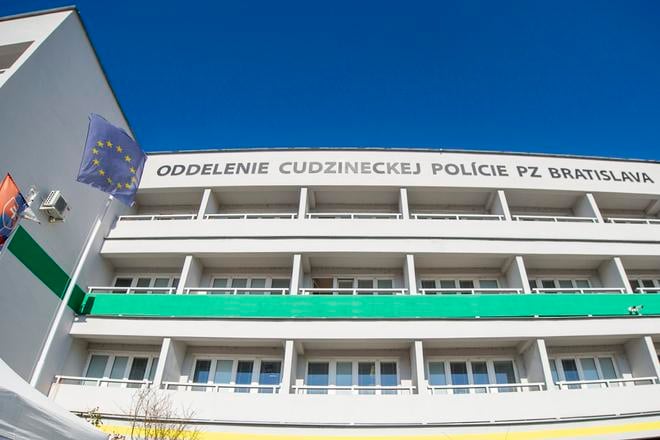The Interior Ministry has unveiled a package of legislative changes aimed at streamlining residence applications for foreigners while tightening rules for foreign entrepreneurs. The government discussed the draft measures at its meeting on Wednesday, with the ministry requesting a fast-tracked legislative procedure.
The proposal would amend the 2011 Act on the Residence of Foreigners to reduce the administrative burden that has led to backlogs at the Foreigners’ Police departments. Under the changes, foreigners would no longer be required to submit proof of financial means when applying for or renewing residence — provided that such documentation is not mandated by European legislation. The ministry argues that financial status can be verified after residence is granted.
Applicants would also no longer be required to submit a photograph, as biometric data, including photographs, are already collected at Foreigners’ Police departments. Citizens of the European Union and their family members would be permitted to submit residence registration applications at any department, rather than being limited to the one corresponding to their address.
Changes to national visas
To help manage high demand, the proposal introduces a legal requirement to book appointments through the ministry’s reservation system,which has long been criticised by foreigners for failing to provide timely appointment dates.
“Since this obligation is not currently embedded in the Act on the Residence of Foreigners, it is necessary to implement such an amendment,” the ministry stated. “The influx of foreigners in Slovakia is immense, and without mandatory reservations at the Foreigners’ Police, public order could be disrupted — particularly due to large gatherings outside police departments and unrest caused by people’s inability to resolve their legal status.”
The proposed amendment would also extend the validity of national visas for those awaiting residence approval — from 90 to 120 days, excluding business-related cases — allowing more time to secure an appointment.
Alleged misuse of business residence permits
Another proposed change targets business-related residence applications. A quota system would be introduced to cap the number of temporary residence permits issued for entrepreneurial purposes. These would be limited to applicants from selected countries, with approval contingent on the assessed economic benefit to Slovakia.
Significantly, new applicants would only be allowed to submit such applications abroad, at Slovak diplomatic missions, with no exceptions. First-time business residence permits would be valid for three years. Renewals and modifications would fall outside the quota system.
According to the ministry, the reforms are intended to curb misuse of business residence permits, improve the efficiency of Foreigners’ Police departments, and shift foreign nationals towards standard forms of employment.
The government is seeking parliamentary approval through a shortened procedure, citing the urgent need to protect public order and fundamental rights. Parliament reconvenes next Tuesday for a three-week session ahead of the summer recess.
Opposition MP calls for transparency
Zuzana Števulová, an MP for Progressive Slovakia, has welcomed parts of the government’s proposed amendment to the Act on the Residence of Foreigners, while warning that the reform contains serious gaps and risks.
Among the positives, Števulová highlighted a reduction in bureaucracy, particularly the removal of the obligation for applicants to prove financial self-sufficiency when applying for residence. She also welcomed the extension of the national visa duration from 90 to 120 days.
However, she warned that several provisions raise serious concerns – especially changes to permits for temporary residence for business purposes. These will now be subject to quotas and can only be issued by Slovak embassies or consulates, raising questions about transparency, efficiency and accessibility.
“What steps will the ministry take to prevent corruption, long delays and bureaucratic gridlock?” Števulová asked. “The reform must not undermine Slovakia’s ability to attract innovative entrepreneurs.”
Although the amendment introduces fundamental systemic changes, it was pushed through without public consultation, leaving experts with no opportunity to weigh in. “That is, in my view, a major failing,” she said.
Števulová also criticised the continued lack of available appointments at the foreign police – slots which, she says, are routinely bought and sold on the black market. “The reform still requires applicants to have a scheduled appointment, but many cannot secure one. The police, under Minister Šutaj Eštok, have failed to address the issue,” she said.
“We still don’t know how brokers gain access to appointments or who is involved in this business,” Števulová added. “I call on the interior minister to give the public clear answers.”


 The Foreigners' Police office in Bratislava's Vajnory district. (source: TASR - Martin Baumann)
The Foreigners' Police office in Bratislava's Vajnory district. (source: TASR - Martin Baumann)